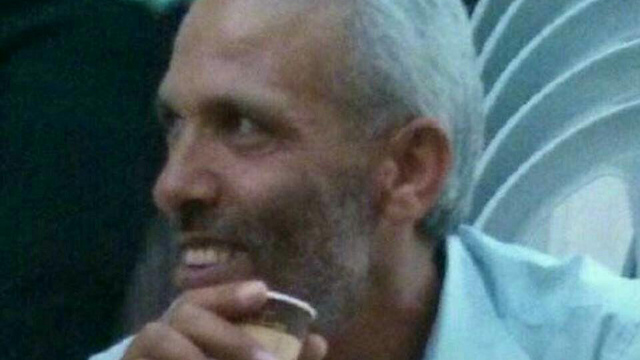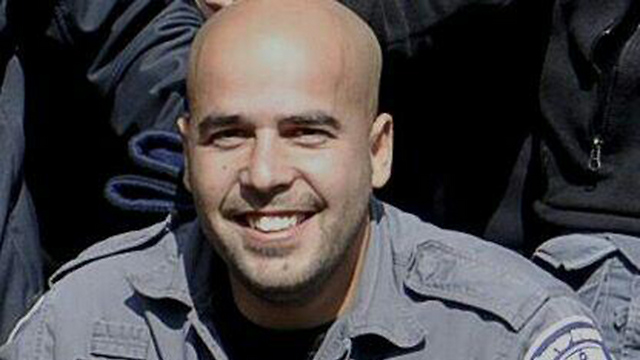

Officer claims he never intended to shoot Bedouin driver
As the police continue to investigate the circumstances leading to the death of Yaqoub Abu al-Qiyan in Umm al-Hiran last month, testimony surfaces from one of the officers who opened fire who insists his warning shots went unheeded; meanwhile, family calls on public security minister and police chief to resign; ‘my brother was murdered.’
One of the policemen who was involved in last month’s shooting of Yaqoub Abu al-Qiyan, a bedouin from Umm al-Hiran, told investigators that he never intended to hit the driver.
The incident occurred on January 18, when a police force arrived on scene to secure illegal home demolitions in the village.
During the operation, a vehicle approached the police force, which roused the officers' suspicion.
They opened fire, injuring the driver, who then sped up in his vehicle and ran over and killed Sgt. Erez Levi, 34, who was on the task force. Al-Qiyan, 47, died later of his wounds.
The officer, who was the first of four to open fire on al-Qiyan’s, vehicle recalled how the incident transpired.
“The car proceeded in the direction of the policemen and didn’t stop, even after they called on him to stop a number of times,” he told the Police Investigation Unit (PIU) after the event. “I fired a warning shot to make him stop.”
The officer also claimed that the bullets were aimed at the car’s wheels and were not intended to hit the driver but rather to warn him. Immediately after, he stated, the vehicle sped up, prompting other officers to open fire.
The investigation of the PIU concluded that the response did not constitute disproportionate use of fire that could have harmed other policemen at the scene.
An official acquainted with the details of the investigation said that a decision had to be taken within a fraction of a second, a fact which he said had to be understood as the reasons mistakes can be made.
“Abu al-Qiyan received many warnings and did not heed them. He continued to drive,” the official stated. “When you are in the field in complete darkness and uncertainty, the policemen operate in a gradual manner and the car kept on travelling in their direction.
“They sensed a clear and immediate life-threatening danger. It could be that from an objective point of view (al-Qiyan) didn’t mean to do anything but what determines the conduct is what a person senses in that same subjective moment.”
In conclusion, the official said: “It isn’t possible to ask the driver what his intention was, but it is expected that the moment there are warning shots, the driver stops.”
Meanwhile the family of al-Qiyan have called upon Public Security Minister Gilad Erdan and Police Commissioner Roni Alsheikh to resign.
The family made the demand on Wednesday following reports that began to circulate indicating that the incident would not be classified as a terror attack.
Ahmed, Yaqoub’s brother, told Ynet that the incident was riddled with mistakes and failures.
“It was an operational failure. There was the accidental killing of the police officer and as a result of this he died. ‘In return’ my brother was murdered,” Ahmed said.
“That is the truth. There was a number of blunders, not one and not two. They were blunders on the part of the police and the policy makers.”
Ahmed went on to say that the “cover-up” of the police should not be believed. “Unfortunately, the police behaved in an irresponsible way, as has the head of the police. I am a bereaved brother and I join the bereaved families in the State of Israel...I am extremely disappointed in the conduct of the police.”
According to Ahmed, Yaqoub asked for help from the policemen before he was shot. “Then they came and shot him and killed him...This whole affair was a crime, and a symptom of the misguided policy and we want to turn it into a seminal event.”

















